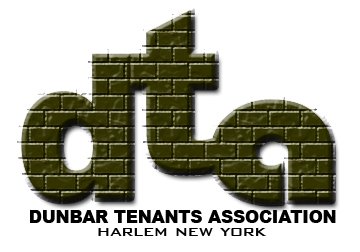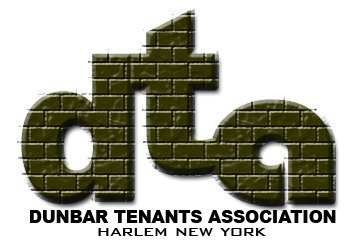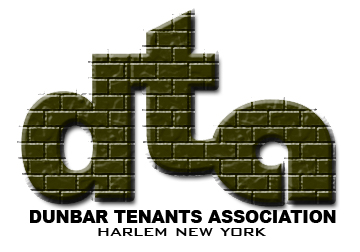Rent-stabilized residential apartments are a relatively new element in the portfolio of big-money investors. Public records reveal what happens when their returns are pushed as hard as energy and tech investments.
Traditionally the province of private owners, rent-stabilized apartments – which account for two-thirds of the city’s 2 million rental units – are attracting the dollars of high-powered money managers of all stripes. The accompanying demand for high returns has some affordable-housing advocates worried about greater pressures to raise rents and revved-up loss of affordable housing – and strategizing about how tenants can fight back.
“We have seen an explosion of very, very aggressive tactics in these large blocks of buildings that have been purchased by private equity-backed financiers. That’s very bad news for affordable housing in New York City,” says Benjamin Dulchin, deputy director of the Association for Neighborhood and Housing Development. “There’s too much money out there, to tell you the truth. Wall Street has found a sleepy corner of the market, and it’s chewing it up.”
Tishman Speyer’s landmark purchase of rent-stabilized Stuyvesant Town and Peter Cooper Village last year for $5.4 billion is the marquee example. There’s also the $1 billion in residential real estate bought over the last few years by the Pinnacle Group, which was sued by nine individual tenants and a Harlem community group in July for allegedly harassing lower-rent tenants. Pinnacle is backed by the Praedium Group, a real estate investor “focusing on underperforming and undervalued assets throughout North America,” according to its website. On a smaller scale, firms such as Taconic Investment Partners, SG2 Properties and Apollo Real Estate Advisors have purchased thousands of units in Queens, Brooklyn, the Bronx and upper Manhattan.
The terms of some deals are revealed through financial documents filed with the federal Securities and Exchange Commission, providing a window into expectations of income growth in rent-stabilized buildings. In fact, the filings relating to a deal by one of the more aggressive players in New York, Vantage Properties LLC – which was formed in late 2005 and often obtains financing through Apollo Real Estate Advisors – demonstrate how one group of properties is expected to double its current rent yield in under a decade.
Vantage Properties owns or manages some 7,000 units in the city. The company’s first major purchase was Delano Village in Harlem, renamed Savoy Park after the acquisition. It is a 1,802-unit apartment complex built in the late 1950s and bought in March 2006 for a reported $175 million. The seven buildings (15 and 45 West 139th St.; 30 West 141st. St.; 60 West 142nd St.; 2300 Fifth Ave. and 620 and 630 Lenox Ave.) occupy a city block on the former site of Harlem’s famed Savoy Ballroom.
In early 2007 the buyers refinanced their 2006 loan of $165 million to $210 million, reserving as much as $42 million for improvements to the property, according to the prospectus from financier Credit Suisse First Boston. The refinancing was in addition to $157 million secured in mezzanine financing, a common borrowing tool used to obtain cash, often at a higher interest rate.
The prospectus outlines an aggressive plan to increase profitability for the building, hiking net operating income from the 2006 level of $7.7 million to $19.5 million. A target date was not given to hit the higher figure, but analysts said it was likely to be in seven years, at the maturity of the loan.
The owners “plan to improve the [property’s] performance by making capital improvements to individual units and raising rents to market levels,” the filing said.
That means taking rents hovering at about $700 for studios and $850 for one- and two-bedroom units and more than doubling them over several years to as much as $2,300 for a two-bedroom, the prospectus said.
Others in the real estate industry see such housing as a strong asset. David Eyzenberg is president of the investment banking firm Prodigious Capital Group, which provides financing to developers. Although not involved in the Harlem property sale, he considers multi-family buildings in working-class neighborhoods a solid investment even as prices are rising. “This is recession-proof. I don’t care what happens, the blue-collar people have to [live] somewhere,” Eyzenberg said.
Michael Slattery, senior vice president for the Real Estate Board of New York, the industry trade group, said investing in older buildings improves the quality of the apartments, creates jobs and adds to the city’s tax base. He said rent-stabilized apartments could not be taken to market rents either outside the law or beyond local demand. “They can’t operate above the market. If they are too aggressive they will lose tenants, and that is a hit on their return,” he said.
In central Harlem in particular, says Corcoran Group senior associate David Daniels, the market is strong and the rents investors hope to get – around $1,200 for a one-bedroom – are on the mark. “The availability of rentals is very limited, so anything that comes on (the market) is going to be rented,” Daniels said.
Eyzenberg said in general new owners can decide how quickly they'll try to get to market rents. "How aggressive will I be? Some are more aggressive than others. The math is not different, only how quickly will I get there,” he said.
Paths management can take toward raising the development’s income include managing the building more efficiently; imposing a 17 to 20 percent post-vacancy increase; adding 2.5 percent of the cost of improvements to the rent; and imposing the city-regulated maximum increase of 5.75 percent for a two-year lease.
Management plans to spend $36,000 on renovations per vacant unit, the prospectus said, which would allow them to add $900 per month for the improvements.
Rent hikes like that make tenant advocates skeptical of the infusion of Wall Street money as a positive force that will primarily bring needed improvements to multi-family housing stock. Dulchin of ANHD, for example, said as the owners seek to make their financial goals in the Harlem complex there will be a loss of affordable rentals. "Clearly we see that in Savoy Park the landlord appears to be engaging in a very aggressive strategy to push out low-paying tenants," he said.
At Savoy, tenants say Vantage Properties subsidiary Vantage Management Services LLC has been alleging that the leases written by the prior owner were below what could legally be charged, an arrangement known as a preferential rent. Over the past six months, Vantage Management has notified scores of tenants that new leases would be based on the legal maximum rent, which in some instances is hundreds more, said housing attorney David Hershey-Webb.
But Hershey-Webb, a partner of the law firm Himmelstein McConnell Gribben Donoghue & Joseph, says the owner can't base a rent increase on the legal maximum because most tenants were never told they were getting a "preferential rent" in the first place. Hershey-Webb has reviewed about 40 leases and is representing 12 tenants against the buildings’ owners in Harlem Housing Court. He has won one case, but dozens remain unresolved.
A more common avenue building owners use to move tenants out is to verify that the individual named on the lease is the same person living in the unit, called a non-primary tenant case. If a landlord can prove a tenant lives most of the time elsewhere, the landlord has no obligation to renew the lease.
Savoy Park tenant association president Valerie Orridge claims that dozens of tenants have received letters alleging the resident is not the lessee. James Drayton, for example, who has lived at Savoy Park for 36 of his 70 years and pays $506 per month for a one-bedroom, says he received notification this spring that Vantage Management would not renew his lease because he actually lived one block away. "I live with my wife... I am home every night and every day. When I got that letter, I had to think: Who would do that to me?" said Drayton, who eventually persuaded the company that he is the primary tenant.
Vantage Properties president and chief executive officer Neil Rubler said his company provides rent protection to tenants, as well as reserving the right to remove tenants that are living illegally in their buildings. In an e-mail from Rubler's representative, Rubenstein Communications, he said, "Our philosophy as new owners is to make long-term investments in the overall quality of our properties, from security and landscaping to structural and unit improvements, in order to create both a more desirable environment for current residents and demand among prospective residents. It’s our guiding principle and we apply it across all of our properties – those with substantial leverage and those that have no leverage at all." Rubenstein declined to have Rubler address the situation with any more detail or specificity.
But Dulchin said the situation cries out for tenant organizing, and his group is working to determine what can be done. He expects outreach to begin this fall.
The efforts to remove tenants have grabbed the attention of lawmakers. City Council Speaker Christine Quinn is working on legislation that would allow tenants to bring legal action against landlords they accuse of a pattern of harassment.
State Sen. Bill Perkins, a Democrat representing Harlem, said he had been receiving calls from tenants and tenant leaders expressing anger about the tactics being used to move residents out.
"We are looking into legal ways to protect the affordability of the development as well as to protect those individuals who are being forced into court or out of their homes," Perkins said.




